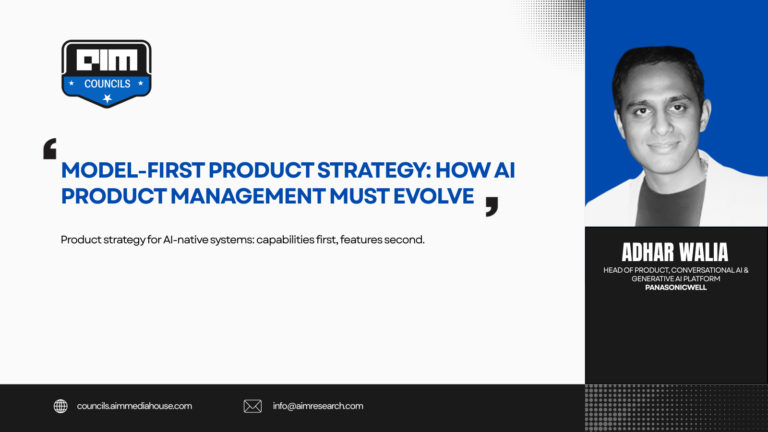The systems remain online, failures are fixed, and business continues, but at what cost? Engineers spend more time reacting than building, while opportunities for innovation go unnoticed and untracked. When AI transforms business functions, IT operations can be manual and reactive. Firms now are looking inwards and applying the same AI to change their infrastructure with a focus on preventing issues rather than fixing them.
Traditional support models and development lifecycles are failing contemporary IT and Data organizations. They subject skilled teams to a regime of reactive firefighting, compromising innovation in favour of day-to-day stability of operations. This old-fashioned method exhausts budgets and burns talented employees, and does not allow companies to achieve the competitive advantage they requireto succeed.
This amounts to a slip backwards, in which organizations incur the costs of response in two folds: once in the immediate response cost, and the other in the cost of the opportunity of the innovation work that never gets implemented. IT&D departments are still stuck as cost centres, i.e., damage control centres, instead of becoming strategic enablers of business development.
Agentic AIOps presents a proven alternative. By embedding intelligence and automation into IT ecosystems, organizations can reverse this destructive dynamic, transitioning from reactive firefighting to proactive prevention and autonomous remediation. This transformation unlocks the innovation capacity that separates market leaders from followers in the digital economy.
Intelligence-Driven Proactive Operations
The conventional IT processes take the same inefficient cycle: wait till the systems crash, get notifications, use the technical departments, format investigative measures, and apply the remedies. This reactive approach fails utterly when deployed to current distributed systems that create the complexity of operation that is well beyond the capability of manual processes. AIOps changes this dynamic by bringing on board machine learning-noted observability platforms, an enhanced log analysis facility, and smart dependency mapping systems. These systems are constantly examining the behavioral patterns within IT ecosystems by detecting anomalies and anticipating any potential problems before they develop into service disruptions.
Automation of Development and Support Lifecycles
AIOps provides outcomes in automating traditionally resource-heavy operations such as SDLC management, incident response processes, and Business-As-Usual Business-As-Usual (BAU) support operations. These processes traditionally absorb titanic amounts of highly skilled engineering time, which causes bottlenecks that reduce innovation and raise the cost of operation.
AI-based runbooks and remediation scripts can transform the way organizations manage their daily operations of the organization. These systems automatically identify complicated anomalies and apply known troubleshooting procedures, autonomously fixing them, without human intervention, by codifying institutional knowledge and proven troubleshooting methodologies into autonomous workflows. This automation is over the entire life cycle of operation, including problem identification and root cause analysis to ultimate remediation and documentation.
A recent implementation by DriveNets resulted in an 87 percent reduction in the overall time to identify, diagnose, and mitigate complex network incidents using automated root cause analysis. This enhancement liberated their engineering departments to focus on coming up with next-generation network capability instead of troubleshooting normal day-to-day operations.
Real-World Applications Delivering Measurable Results
The agentic AIOps applications cover a variety of operational areas, all of which play a role in transforming reactive to proactive operations. Intelligent event correlation and automated root cause analysis remove the manpower-intensive manual detective work that historically took hours of engineering time when responding to an incident. Such systems quickly resolve multi-system failures and identify likely root causes within minutes, which dramatically shortens time to action.
Another important area of application is data quality validation. Provided by intelligent AI agents, data quality is continuously monitored and checked in storage and processing pipelines, and anomalies are automatically identified and corrective actions take place before they can compromise downstream systems. This is proactive in nature and helps avoid failures that happen when the poor data quality propagates in the business analytics processes.
ChatOps integration makes AIOps insights readily available in collaborative tools where technical teams can discuss about what is being done day-to-day, removing context switching and communication bottlenecks that delay incident response. Problems are identified and distributed on the right channels promptly with the information and suggestions on suitable course of action that allows prompt involvement of qualified staff members.
Industry Change Evidence
Organizations in any industry are appreciative of the fact that AIOps is a strategic facilitator of digital transformation. According to the GSMA Intelligence Telco AI report (Q2 2025) the operators around the world have begun to transition towards the implementation stage of strategic development, focusing on AI applications that can produce immediate cost savings and create capabilities which can later be leveraged in the creation of revenue-generating applications in the future.
This shift to autonomous operations systems may be seen in the recent announcement by HPE Juniper of Mist agentic AI capabilities to operate the network autonomously. These applications show how limited automation in well-known areas provides short-term operational gains and develops organization trust to scale autonomous operations to wider use.
Implementation Requirements
The successful implementation of agentic AIOps must cover essential challenges other than the technology implementation. Assurance of data quality and system integration are also critical requirements as AIOps platforms demand high-quality, extensive, telemetry data in the across IT environments. Without well-integrated monitoring tools, organizations have to invest in observability infrastructure upgrades before AIOps can produce the best results. Cultural change is a serious challenge to an organization. To switch to the proactive instead of reactive operation, team structures, processes and attitudes have to change. The engineers need to be taught to work with AI-driven systems, whereas the leadership to facilitate organizational changes required to achieve the benefits of automation.
The confidence to autonomous systems is built in a systematic way. Effective implementations start with AI-assisted as opposed to fully automated remediation, and instill confidence by learning with supervision and policy-enforced guardrails to make sure automated behaviors do not exceed organizational risk tolerance. Strategic AIOps is a re-conception of how organizations evaluate IT operations, shifting away from traditional reactive models to proactive, intelligent and, more autonomous systems. The values go beyond the efficiency in operations to include strategic change that will help in creating long-term innovation and a competitive edge.
Companies that manage to implement such a shift find more robust infrastructure, happy customers, and increased ability to create innovation work that makes them successful in the digital economy. As a possible solution to achieving strategic IT organizations, AIOps provides a time-tested route to operational excellence to build business by turning cost management into innovation capacity.







